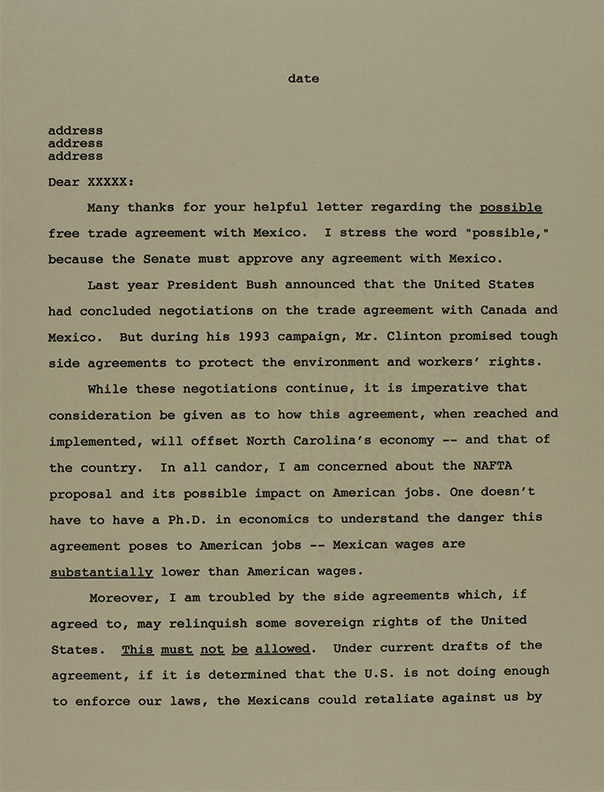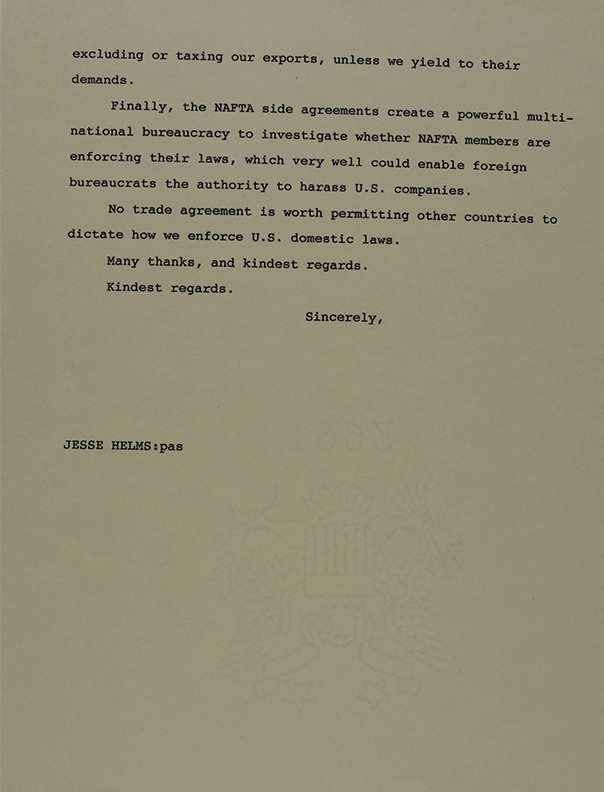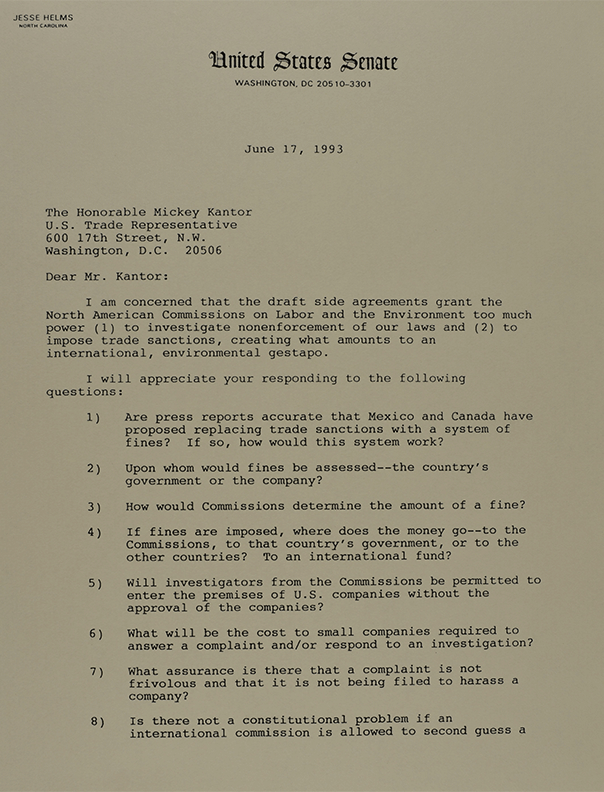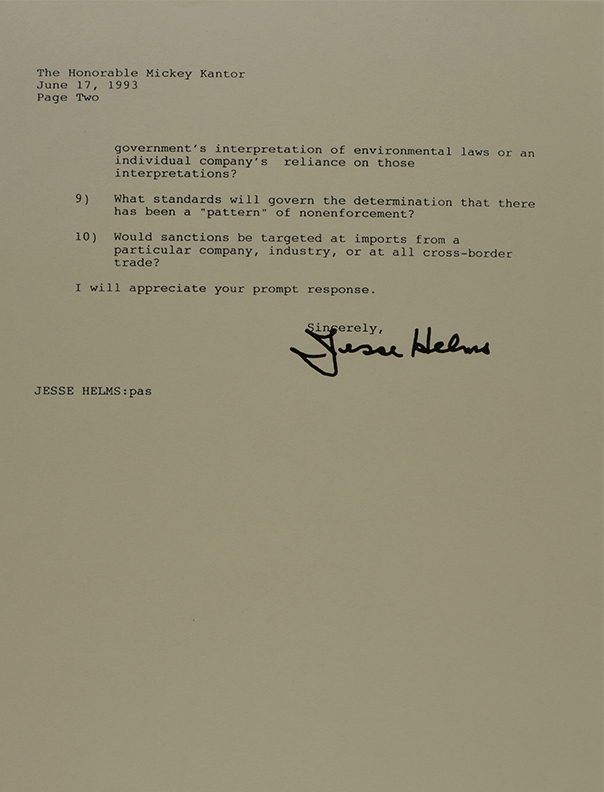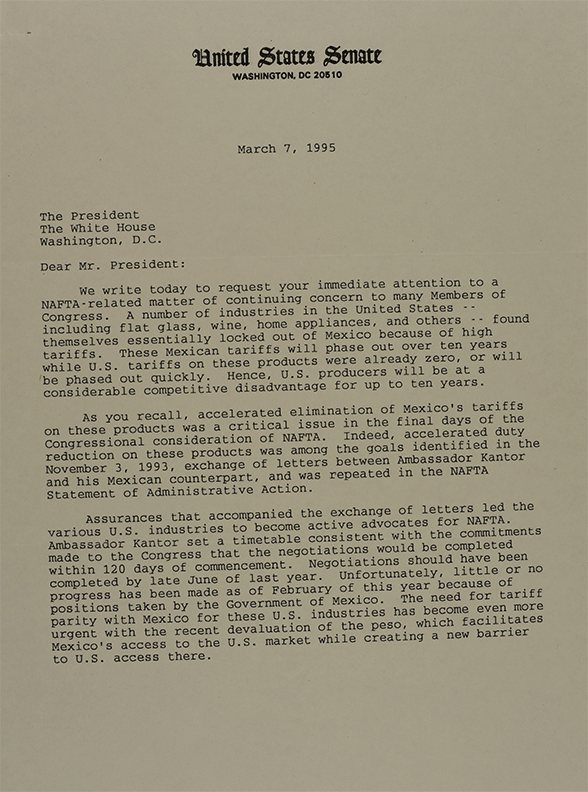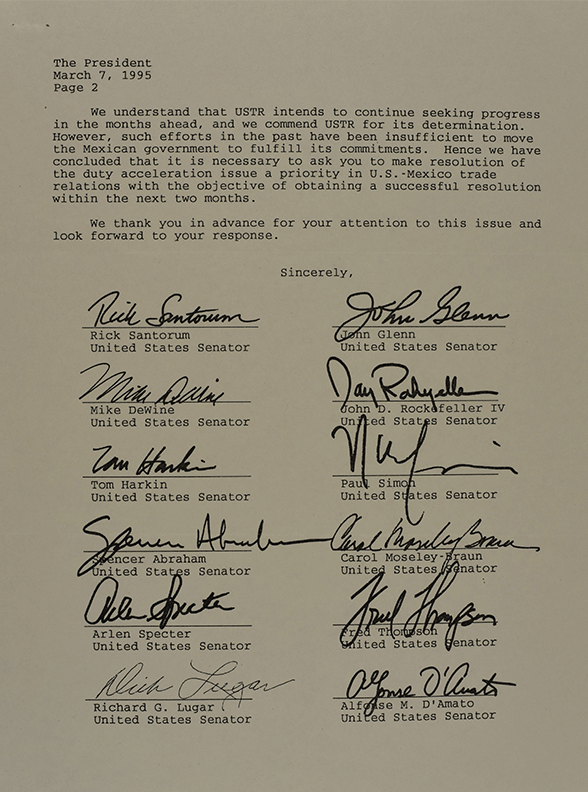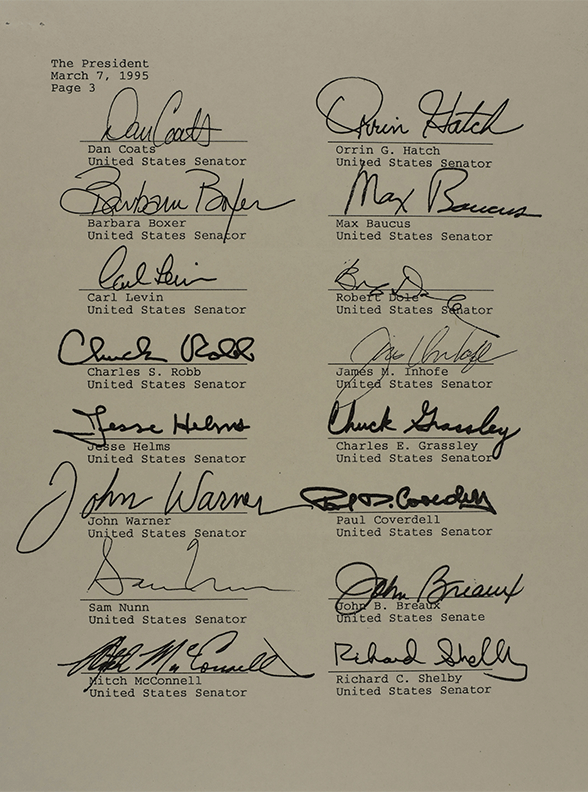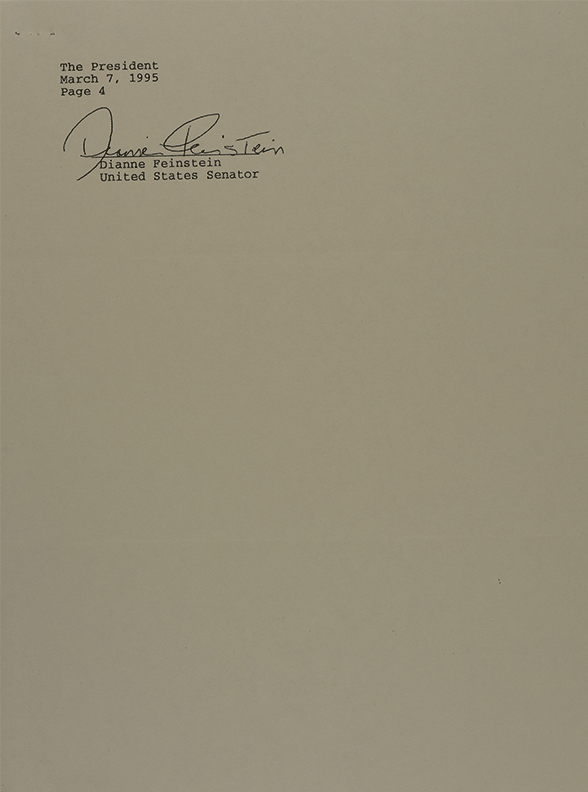Senator Helms
vs
the North American Free Trade Agreement (NAFTA)
I came to this Senate I came to this Senate in January of 1973 vowing to do the best I could to oppose tax increases, foreign aid, and treaties that undermine U.S. sovereignty. This NAFTA agreement will increase taxes, it will increase foreign aid, and it will undermine the sovereignty of this great country…I have had to agree to disagree agreeably with some of my best friends and colleagues. But, I am convinced that an acceptable agreement can be worked out.
what is nafta?
At its inception, the North American Free Trade Agreement was a controversial agreement between the United States, Canada and Mexico intended to reduce trading costs, increase business investment and help North America be more competitive in the global marketplace. Article 102 of the agreement outlines seven main goal areas:
- Grant signatories Most-Favored-Nation status.
- Eliminate barriers to trade and facilitate the cross-border movement of goods and services.
- Promote conditions of fair competition.
- Increase investment opportunities.
- Provide protection and enforcement of intellectual property rights.
- Create procedures for the resolution of trade disputes.
- Establish a framework for further trilateral, religion, and multilateral cooperation to expand the trade agreement’s benefits.
On December 17, 1992, the initial agreement was signed by U.S. President George H.W. Bush, Canadian Prime Minister Brian Mulroney, and Mexican President Carlos Salinas and approved by each countries legislatures in 1993. In the U.S., the House of Representatives approved by a vote of 234 to 200. The Senate approved it by 61 to 38, and President Bill Clinton signed NAFTA into law on December 8, 1993. On January 1, 1994, NAFTA officially went into force.
Proponents of NAFTA argued that it would increase employment in the United States and have no negative effects on the environment.
why did Senator Helms oppose nafta?
Senator Helms often said that “in order for there to be free trade there must be fair trade.” If he thought any trade agreement was going to be harmful to the United States he opposed it. Therefore, when he thought the NAFTA was going to undermine American sovereignty, take jobs away from American workers, and hurt the economy, he fought hard to make changes to the agreement to protect American worker and the economy.
Below is an example of a response letter Senator Helms sent to constituents who expressed concerns over NAFTA.
NAFTA opposition focused on its impact on the American worker. Many feared American companies would relocate to the Mexico to avoid paying minimum wage and benefits and, as a result, companies remaining in America would lower wages and cut benefits to compete with foreign companies. In particular, Helms was concerned for the textile and furniture industries in North Carolina and what would happened to the state’s economy of the companies moved and people lost their jobs.
Also, Helms worried that the creation of a multinational bureaucracy, tasked with investigating NAFTA members and to ensure they are enforcing laws, would allow foreign bureaucrats to dictate rules to American companies and relinquish U.S. sovereignty rights. Helms wrote, “No trade agreement is worth permitting other countries to dictate how enforce U.S. domestic laws.” Senator Helms was so concerned that he sent a letter to the United States Trade Representative, Michael Kantor, with ten questions and concerns about the North American Commissions on Labor and the Environment having too much power and becoming an “international, environmental gestapo.”
Below is a by-partisan letter to president Bill Clinton voicing concerns over parts of NAFTA and asking for his immediate attention:
Today, people still debate the impact of NAFTA on North American economies. Some experts argue NAFTA created jobs and boosted the American economy and other argue it hurt the economy and forced companies to move jobs out of the country. In fact, NAFTA was a point of discussion in the 2016 Presidential election when candidate Donald Trump said he wanted to examine if NAFTA is still a viable and positive option for the United States.


